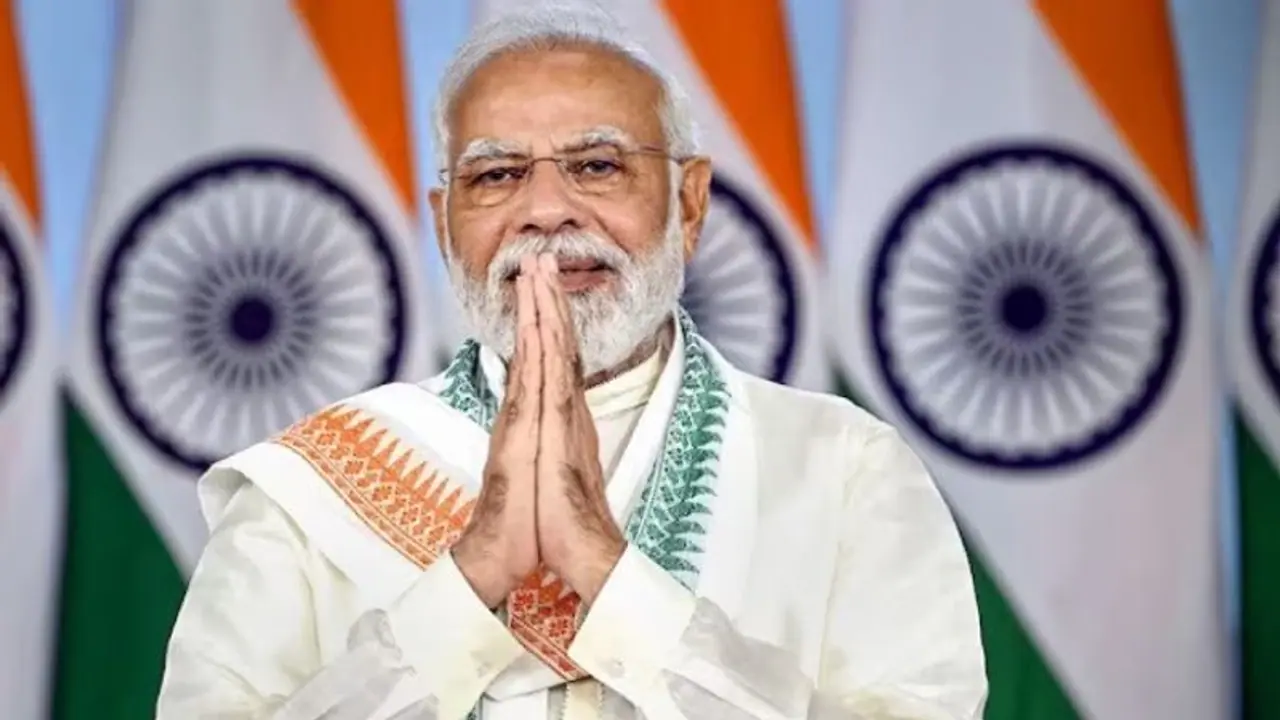Prime Minister Narendra Modi, celebrated for his resilience, emphasized public service over politics after recent victories. His leadership, honed through disaster management experiences in Gujarat, culminated in the implementation of crucial legislation. Elevating disaster preparedness during his tenure, Modi's proactive approach, seen in crises like the Kashmir floods and COVID-19, garnered global acclaim for India's response and vaccine distribution.
Prime Minister Narendra Modi, recently addressing activists after triumphant wins in three recent state elections, displayed an uncommon composure in victory, emphasizing the need to prioritize public service over politics. His stance, reflective of a leader ready to navigate both triumphs and setbacks, echoes a sentiment of fortitude amidst adversity.

The saying, "When the going gets tough, the tough get going," aptly characterizes Modi's leadership. His resilience and ability to make bold decisions in challenging circumstances have earned him trust and recognition. Notably, his journey traces back to Gujarat, where as a 29-year-old Rashtriya Swayamsevak Sangh promoter, he spearheaded disaster management during the devastating Morbi dam burst in 1979.
'Express yourself responsibly...' Maldives government raps ministers after India protests derogatory remarks
The 2001 Kutch earthquake, claiming thousands of lives, further shaped Modi's understanding of disaster management as a party worker. His direct involvement prompted the implementation of the Disaster Management Act in Gujarat, the first state to adopt such legislation. This pivotal move served as a model for the nation, eventually aiding governments across India, notably during the COVID-19 pandemic.
Taking disaster management seriously from the outset of his tenure as Prime Minister, Modi elevated its importance under the Ministry of Agriculture and amplified funding for SDRF and NDRF threefold. Collaborative agreements with 25 nations for mutual assistance during calamities reinforced India's global preparedness.
Modi's proactive approach was evident during crises: his swift response during the Kashmir floods in 2014 and Operation Maitri's rescue of over 6000 individuals during Nepal's 2015 earthquake showcased India's humanitarian commitment.
In a rarity, Chinese state media lauds PM Modi's 'Bharat narrative'; hails economic growth, foreign policy
India's rescue of 4500 citizens from war-torn Yemen, Railway Minister Ashwini Vaishnav's hands-on approach during a train accident in Odisha, and leaders like VK Singh actively engaged during the North Kashi tunnel collapse emphasized the government's dedication to citizen safety.
The ultimate test arrived with the COVID-19 pandemic, and Modi's leadership shone through. Despite sceptics, India's proactive measures, inclusive of providing over 2 billion vaccines free of charge, helped combat the virus. This tenacity amid adversity has earned global recognition.
